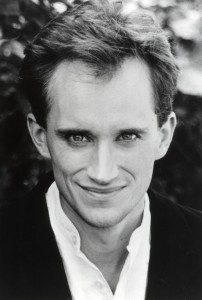
Author Harry Bingham started out as an investment banker, but says he grew bored of pillaging the planet and robbing poor people. “So I decided to become a poor person – and turned my hand to writing. Ten or so books on from there, I wouldn’t dream of any other career.”
Harry says his greatest area of strength as a writer is surviving. “It’s very tough to make a career as an author and I’ve done so pretty effectively for over a decade. A less flippant answer is tough to come by. My most recent novel (a work of crime fiction) is unquestionably most remarkable for its strong voice and the strong – even abrasive – personality of the central character. But that’s because that’s what that particular book needed. I adapted my style to the needs of this particular story. Other times, my writing has offered something much softer. I used to write yarns with a quite old-fashioned feel. If I had to survey everything I’ve written and come up with a single common denominator, I’d say that I write strong stories that have a quiet underlying intelligence. Beach reads you don’t have to be ashamed of.”
The part of his writing Harry says he wants to improve is his plotting. “I don’t think I have a natural gift in that area, although I do think it’s profoundly important to any book. So I work particularly hard at that. In what I’m writing currently, I like both the voice I’m using and the character I’m writing about – so much so that I adore writing the books in question. That enjoyment probably blinds me to some raging weaknesses in my work.”
Though Harry himself is traditionally published, he works a lot with indie authors through his consultancy, the Writers’ Workshop. “What I see is that to succeed as an indie author you need to write a good book (which is hard) and secure a really strong marketing platform (which is very hard). But plenty of conventional publishers are pretty feeble when it comes to marketing. One of our clients is currently #2 and #4 on the Kindle ‘Children’s Love and Romance’ bestseller list, jostling with Stephenie Meyer, who is #1 and #3. I truly doubt if any conventional publisher would have created the same level of success for that author.”
Because of his work with the Writers’ Workshop, Harry spends lots of time talking to, working with and communicating with people from every part of the publishing industry. That includes indie authors, of course – but it also includes literary agents, trad publishers, self-publishing companies and conventionally published authors too. “Because we run writing courses and festivals, I get to meet people face to face a lot, which I think does really help. Online tools are certainly very helpful too, but they should support rather than replace actually meeting people.”
Reaching, recruiting and interacting with readers is something Harry says he accomplishes mostly through his blog and website platforms. He can receive up to 90,000 visits to the website each month, so there’s a massive traffic flow there. He emphasizes the importance of responding personally to each reader contact.
Harry believes the indie author movement is growing up very fast. He says, “Do readers care or even know which book is conventionally published and which is independently published? I’m sure the answer is no. I’m fairly certain that I’ll still be writing for a living in 5-10 years time, but have I signed my last ever conventional publishing contract? Well, maybe. I honestly couldn’t say.”
His advice to aspiring writers? “Write a good book! You can’t be too meticulous. Successful authors are obsessive perfectionists. You need to be the same. Too many people agonise for too long over minor things – the colour scheme for a website, the author pen name, a choice of font. None of that matters compared with the really big things: getting the plot right, making your characters sing, developing a strong writing style. Those things don’t come quickly or easily, but they’re the only things that really matter.”
Harry’s forthcoming book, Talking to the Dead, appears to be a conventional detective story. A woman and her young daughter are found dead in a Cardiff squat. A platinum bank card is found at the scene of the crime, but the card belongs to a millionaire who’s been dead for nine months.
Rookie detective, Fiona Griffiths, is part of the team assigned to investigate. But it’s not long before it seems that Griffiths’ past is more mysterious than the crime itself – more mysterious and twice as dark. As the investigation proceeds, we start to learn more about the detective we’re dealing with. More about her, her shadowy father, and her strange affinity with corpses.
_________________
Harry Bingham lives in Oxfordshire, England with his wife & dogs. You can see all his books here (for British readers) or here (for American ones). The Writers’ Workshop offers manuscript assessments and writing courses. You can follow Harry on Twitter at @harryonthebrink.
[subscribe2]

Wonderful interview; thanks Stephen Hise!
I was especially riveted by this comment: "Online tools are certainly very helpful too, but they should support rather than replace actually meeting people.”
Hey, is that investment banking job still available?
Great interview. I agree with Marcia about the online tools. I don't think anything can replace face to face conversations with people.